I thought that I had been asked every kind of question possible.
ABBAS KIAROSTAMII am still very surprised that I managed to make that film [Close Up]. When I actually look back on that film, I really feel that I was not the director but instead just a member of the audience.
More Abbas Kiarostami Quotes
-





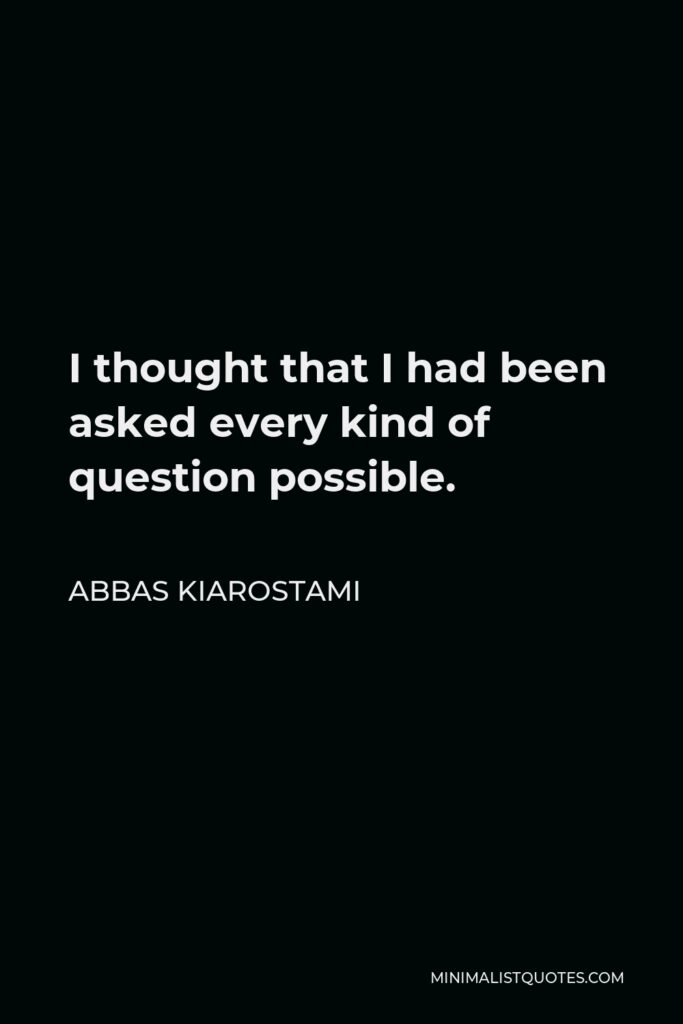

-





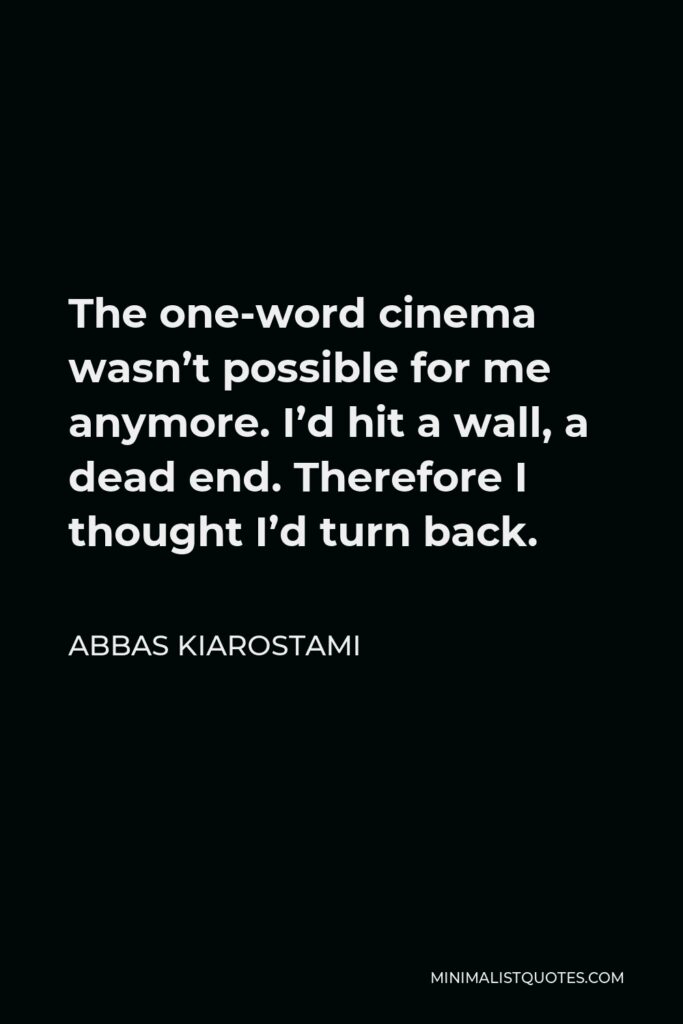

The one-word cinema wasn’t possible for me anymore. I’d hit a wall, a dead end. Therefore I thought I’d turn back.
ABBAS KIAROSTAMI -





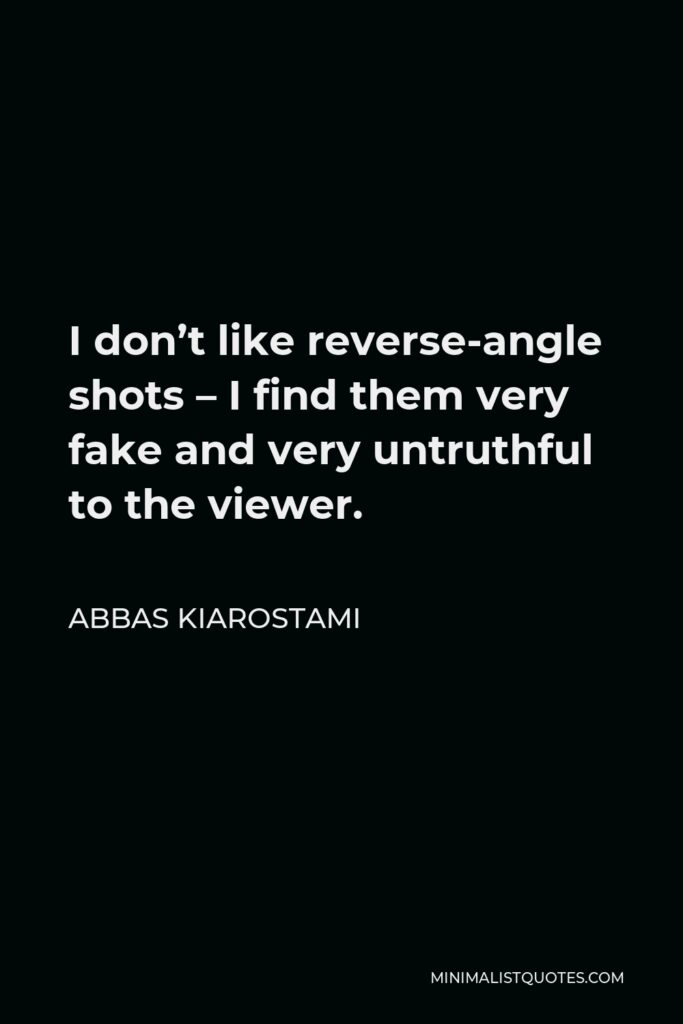

I don’t like reverse-angle shots – I find them very fake and very untruthful to the viewer.
ABBAS KIAROSTAMI -





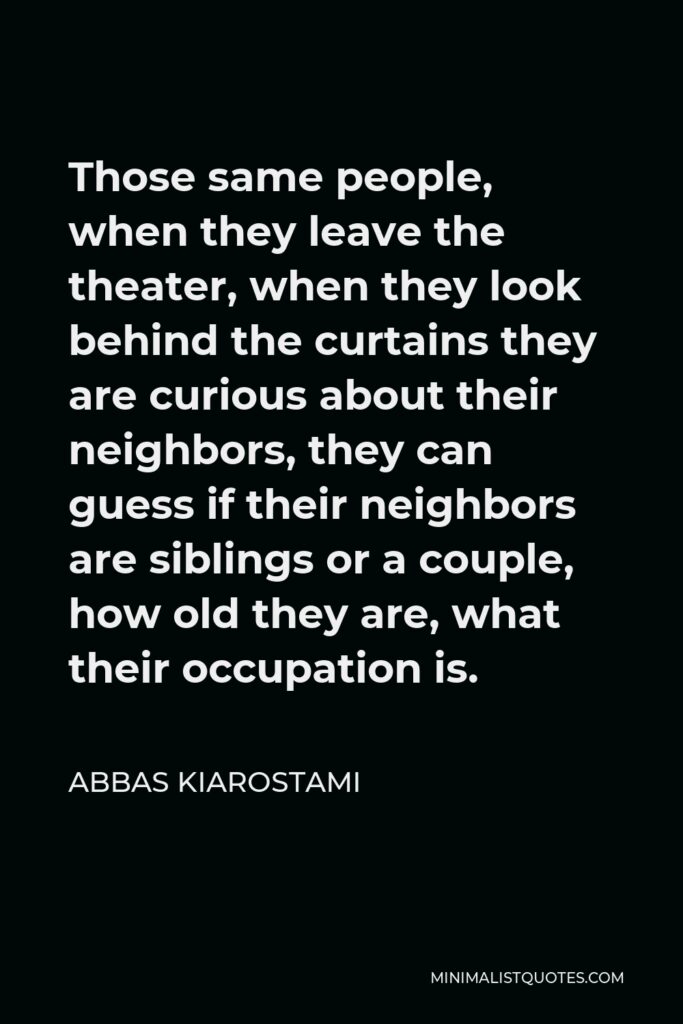

Those same people, when they leave the theater, when they look behind the curtains they are curious about their neighbors, they can guess if their neighbors are siblings or a couple, how old they are, what their occupation is.
ABBAS KIAROSTAMI -





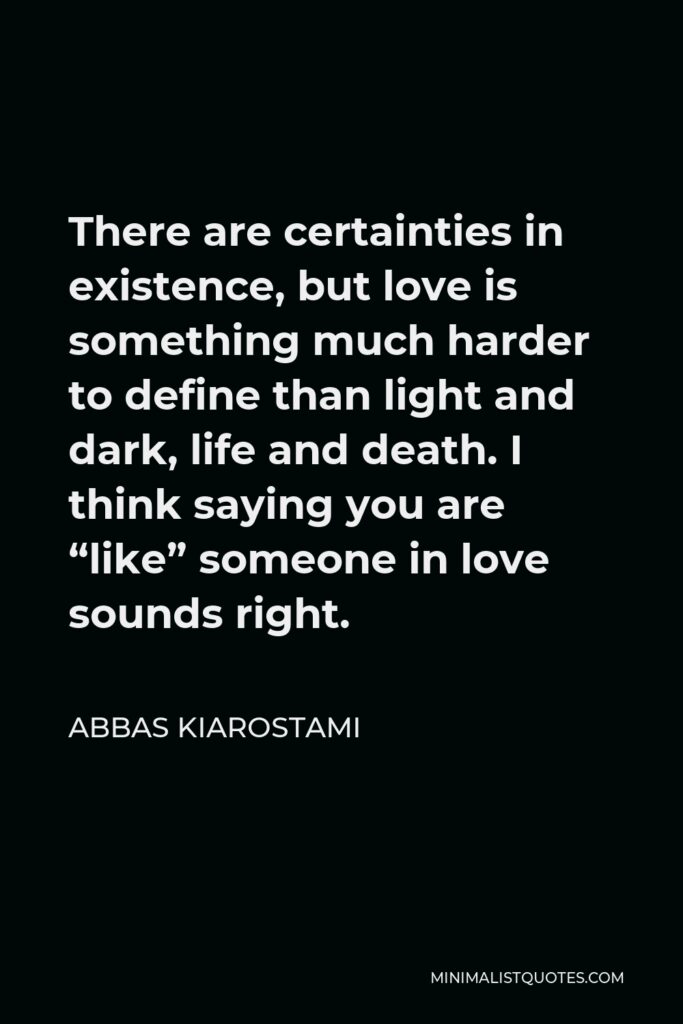

There are certainties in existence, but love is something much harder to define than light and dark, life and death. I think saying you are “like” someone in love sounds right.
ABBAS KIAROSTAMI -





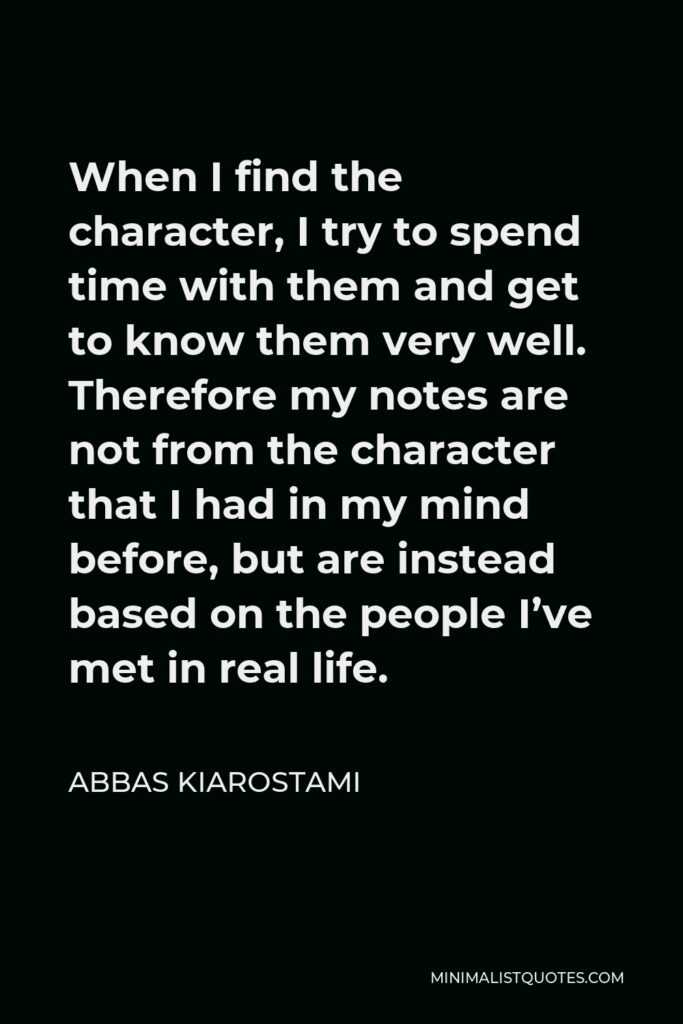

When I find the character, I try to spend time with them and get to know them very well. Therefore my notes are not from the character that I had in my mind before, but are instead based on the people I’ve met in real life.
ABBAS KIAROSTAMI -





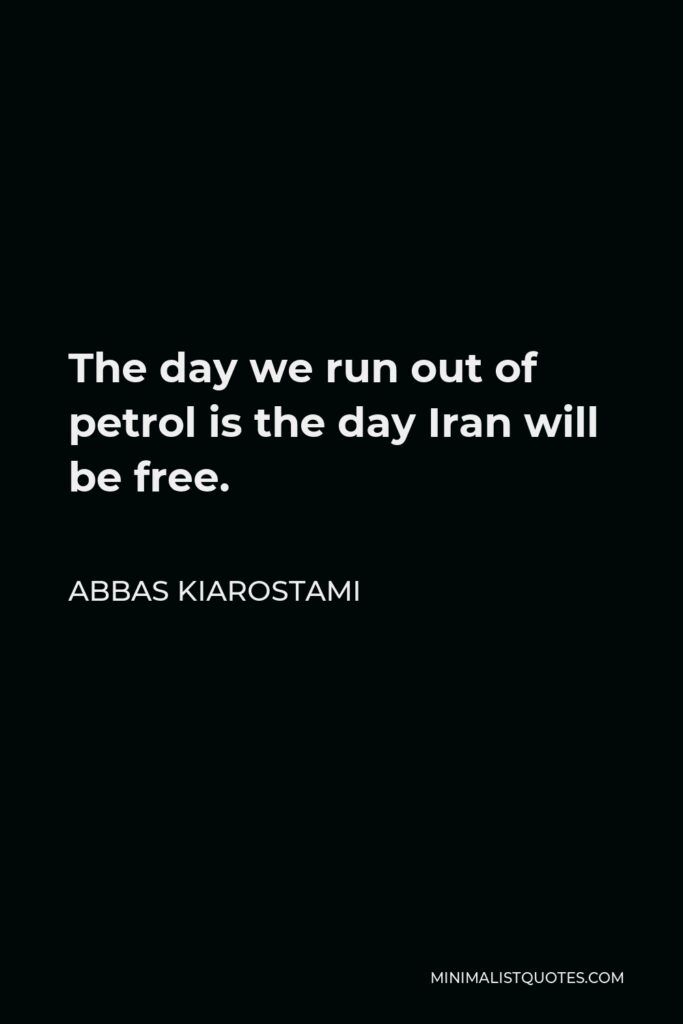

The day we run out of petrol is the day Iran will be free.
ABBAS KIAROSTAMI -





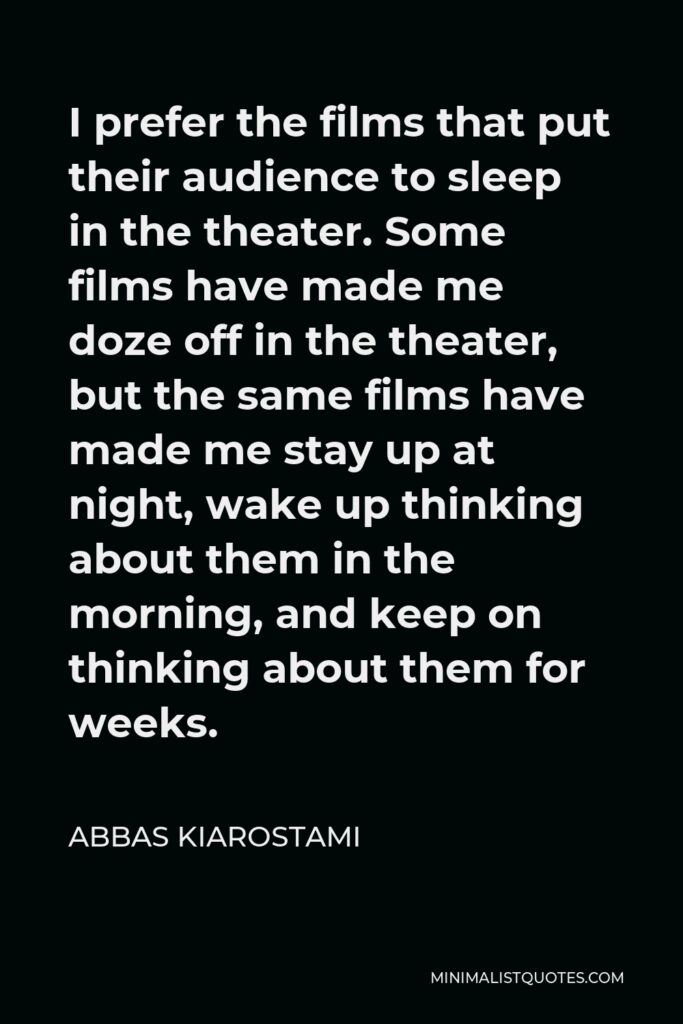

I prefer the films that put their audience to sleep in the theater. Some films have made me doze off in the theater, but the same films have made me stay up at night, wake up thinking about them in the morning, and keep on thinking about them for weeks.
ABBAS KIAROSTAMI -





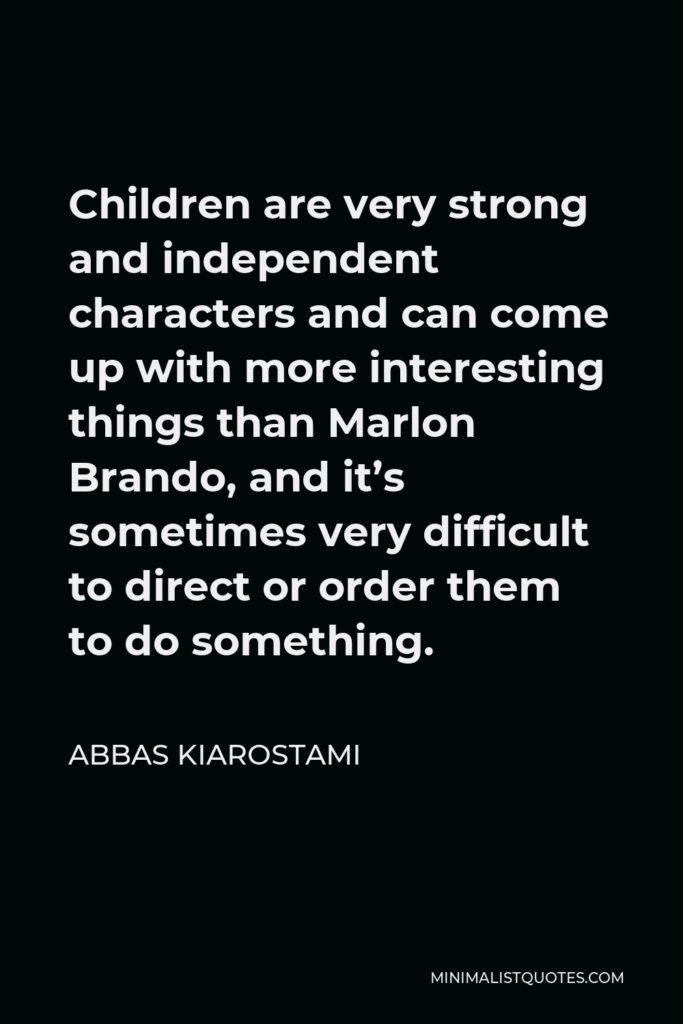

Children are very strong and independent characters and can come up with more interesting things than Marlon Brando, and it’s sometimes very difficult to direct or order them to do something.
ABBAS KIAROSTAMI -





![Abbas Kiarostami Quote - I do believe in [Robert] Bresson’s method of creation through omission, not through addition.](https://minimalistquotes.com/wp-content/uploads/2022/04/i-do-believe-in-robert-bressons-method-of-creation-683x1024.jpg)

I do believe in [Robert] Bresson’s method of creation through omission, not through addition.
ABBAS KIAROSTAMI -





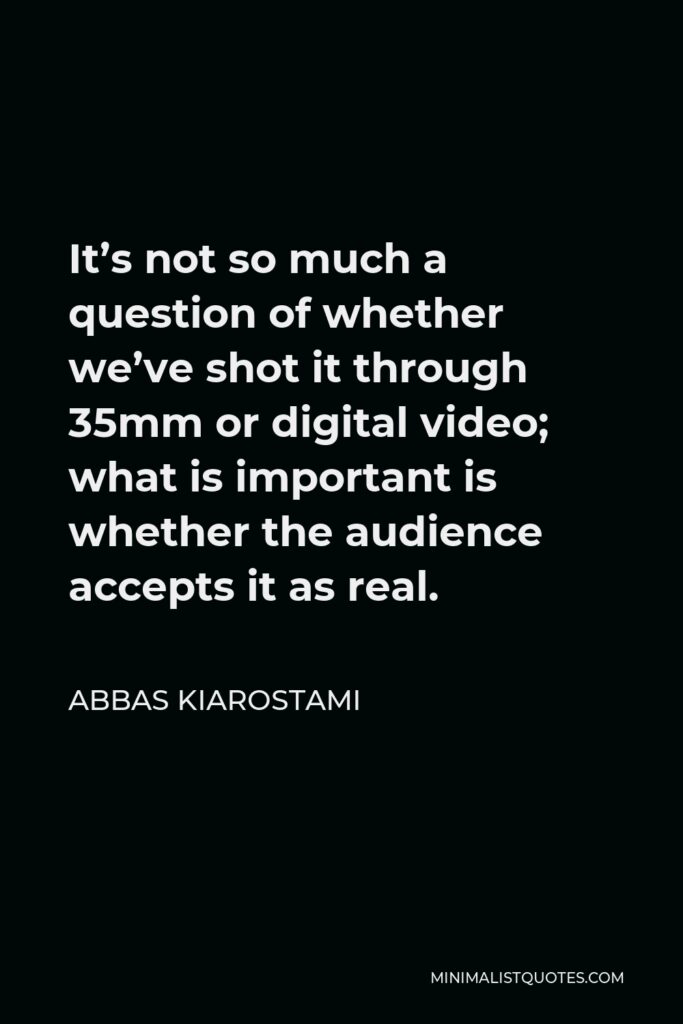

It’s not so much a question of whether we’ve shot it through 35mm or digital video; what is important is whether the audience accepts it as real.
ABBAS KIAROSTAMI -





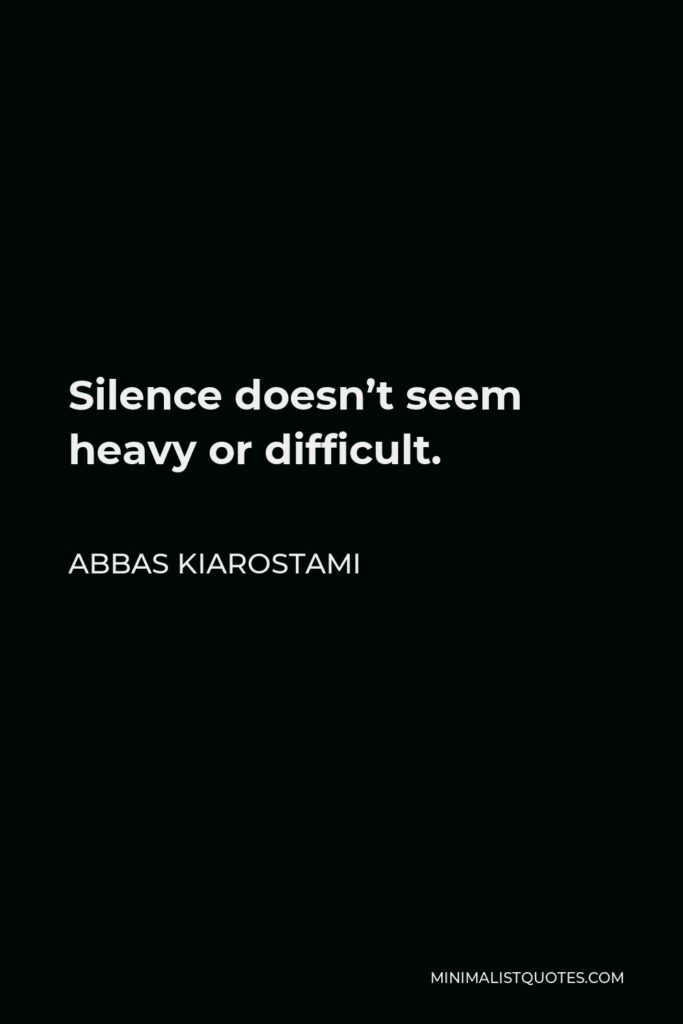

Silence doesn’t seem heavy or difficult.
ABBAS KIAROSTAMI -





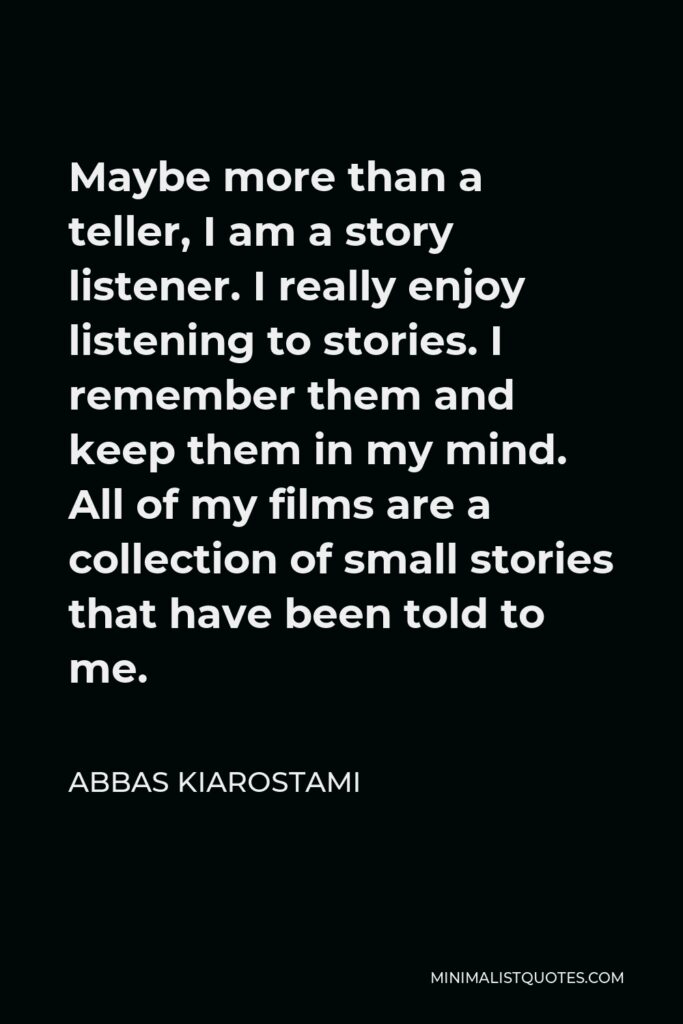

Maybe more than a teller, I am a story listener. I really enjoy listening to stories. I remember them and keep them in my mind. All of my films are a collection of small stories that have been told to me.
ABBAS KIAROSTAMI -





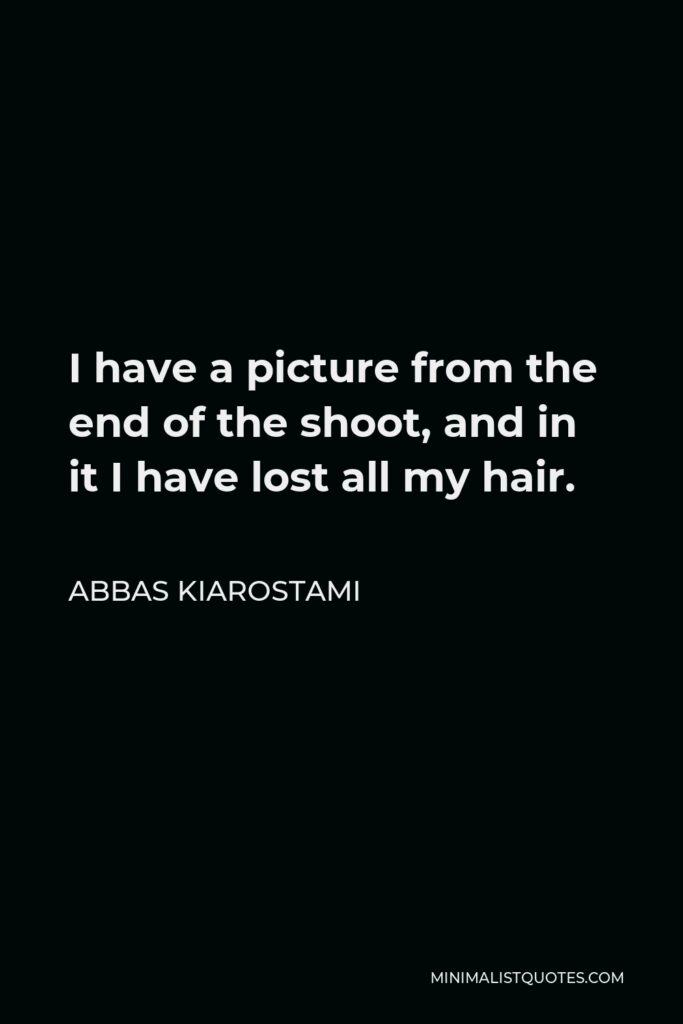

I have a picture from the end of the shoot, and in it I have lost all my hair.
ABBAS KIAROSTAMI -





![Abbas Kiarostami Quote - I am still very surprised that I managed to make that film [Close Up]. When I actually look back on that film, I really feel that I was not the director but instead just a member of the audience.](https://minimalistquotes.com/wp-content/uploads/2022/04/i-am-still-very-surprised-that-i-managed-to-make-t-683x1024.jpg)

I am still very surprised that I managed to make that film [Close Up]. When I actually look back on that film, I really feel that I was not the director but instead just a member of the audience.
ABBAS KIAROSTAMI -





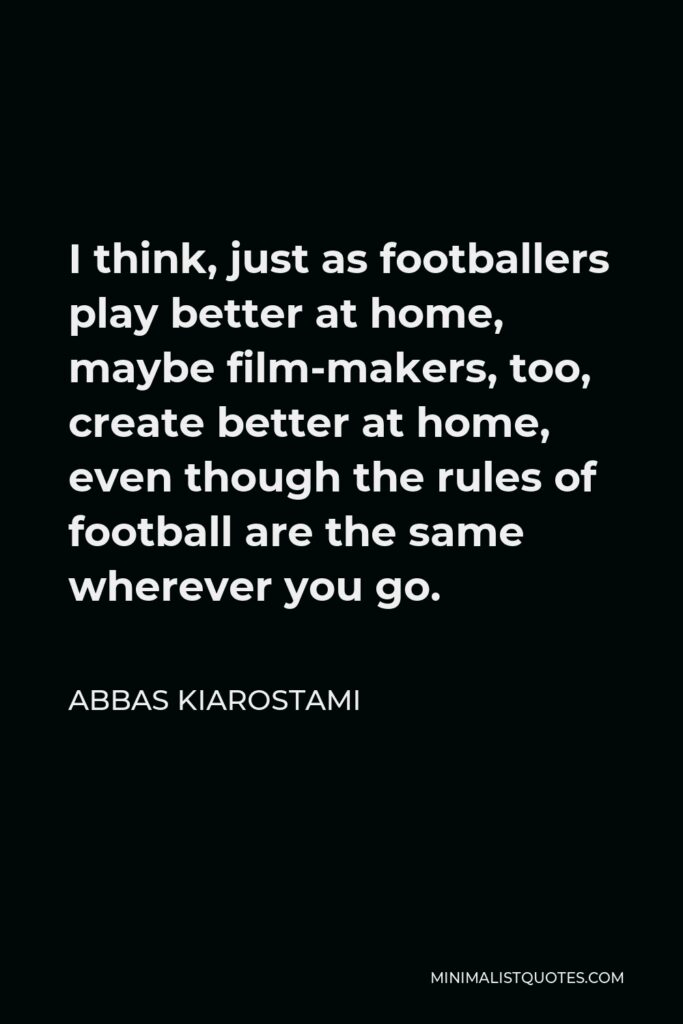

I think, just as footballers play better at home, maybe film-makers, too, create better at home, even though the rules of football are the same wherever you go.
ABBAS KIAROSTAMI
![Abbas Kiarostami Quote - I am still very surprised that I managed to make that film [Close Up]. When I actually look back on that film, I really feel that I was not the director but instead just a member of the audience.](https://minimalistquotes.com/wp-content/uploads/2022/04/i-am-still-very-surprised-that-i-managed-to-make-t.jpg)
![Abbas Kiarostami Quote - I am still very surprised that I managed to make that film [Close Up]. When I actually look back on that film, I really feel that I was not the director but instead just a member of the audience.](https://minimalistquotes.com/images/grey-i-am-still-very-surprised-that-i-managed.jpg)
![Abbas Kiarostami Quote - I am still very surprised that I managed to make that film [Close Up]. When I actually look back on that film, I really feel that I was not the director but instead just a member of the audience.](https://minimalistquotes.com/images/blue-i-am-still-very-surprised-that-i-managed.jpg)
![Abbas Kiarostami Quote - I am still very surprised that I managed to make that film [Close Up]. When I actually look back on that film, I really feel that I was not the director but instead just a member of the audience.](https://minimalistquotes.com/images/red-i-am-still-very-surprised-that-i-managed.jpg)
![Abbas Kiarostami Quote - I am still very surprised that I managed to make that film [Close Up]. When I actually look back on that film, I really feel that I was not the director but instead just a member of the audience.](https://minimalistquotes.com/images/brown-i-am-still-very-surprised-that-i-managed.jpg)
![Abbas Kiarostami Quote - I am still very surprised that I managed to make that film [Close Up]. When I actually look back on that film, I really feel that I was not the director but instead just a member of the audience.](https://minimalistquotes.com/images/white-i-am-still-very-surprised-that-i-managed.jpg)

